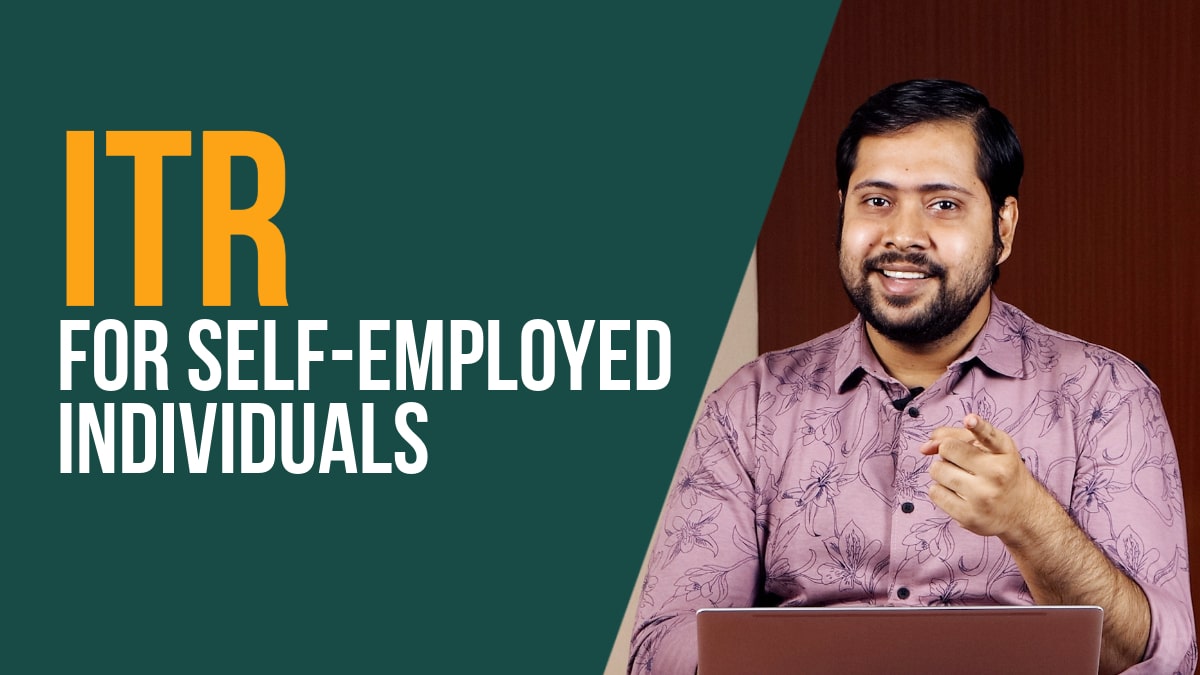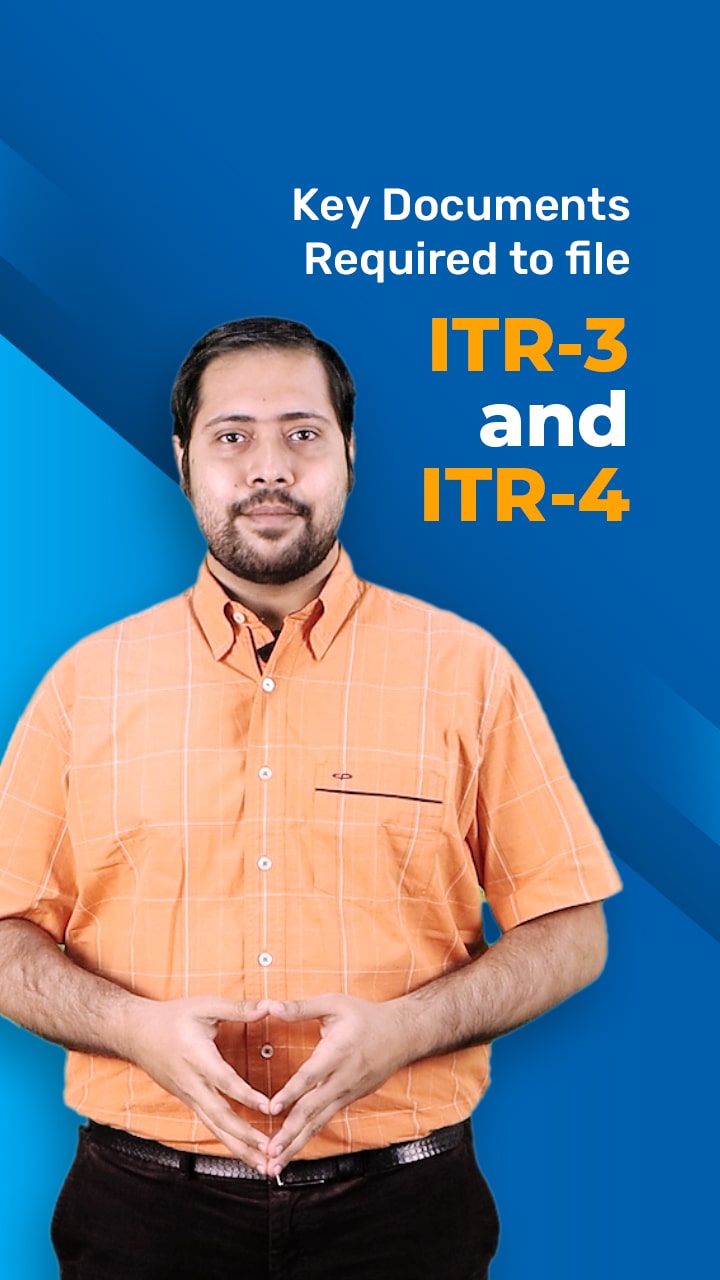ITR for Self-employed Individuals: Explained
Ready for tax season, or still feeling a bit confused? Don’t worry, we’re here to make things clearer with this video.
First, we'll discuss ITR-3. This can be the ideal form for anyone running a proprietary business or profession. If you’re running a ‘one-man-show’ —like a doctor, lawyer, or consultant—this form is for you. It includes your total income from your practice.
Next, you'll understand all about ITR-4 and the presumptive taxation scheme. With this scheme, your income is calculated as a set percentage of your turnover under Sections 44AD, 44ADA, or 44AE. We’ll also look at finer details under each. For instance, Section 44AD applies to business owners with a turnover up to ₹2 Crores, Section 44ADA to professionals earning up to ₹50 Lakhs. Similarly, Section 44AE applies to those working with goods carriages who own up to ten vehicles.
Finally, the video explores other forms like Form 16A, Form 26AS, Annual Information Statement, and Form 3CB-CD. You’ll also learn about Forms 15G and 15H, which are needed to avoid TDS deductions on your interest income.
Filing ITR may initially seem tough for self-employed individuals. However, with the right forms and a little preparation, you’ll soon become a pro at filing your taxes!

Key Takeaways
ITR-2 is for individuals and Hindu Undivided Families (HUFs) with income from sources like capital gains and house property
ITR-3 is for individuals running a proprietary business or profession, capturing all business income and expenses
ITR-4 is for individuals who have opted for the presumptive taxation scheme under Section 44AD, 44ADA, or 44AE
ITR-5 is for firms like Limited Liability Partnership (LLP), Body of Individuals (BOI), and Association of Persons (AOP)
ITR-6 is for companies, barring those claiming exemption under section 11
ITR-7 is for individuals required to furnish a return under sections 139(4A) to 139(4F)
Keep all necessary documents handy, including PAN card, Aadhaar card, bank account details, and Form 16/16A/16B
Double-check calculations to ensure accuracy and claim all eligible deductions and exemptions when filing your ITR online
What to Watch Next

























